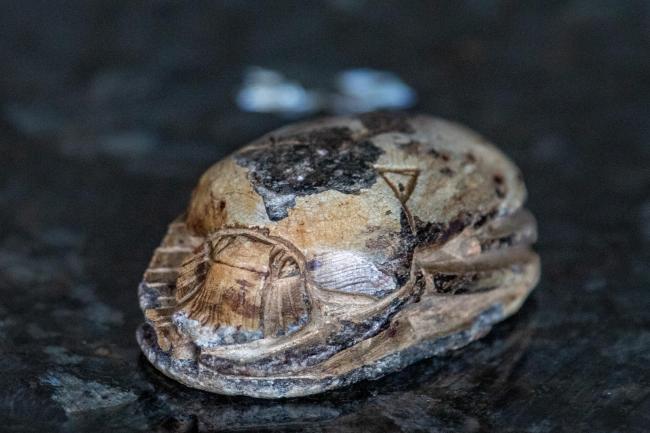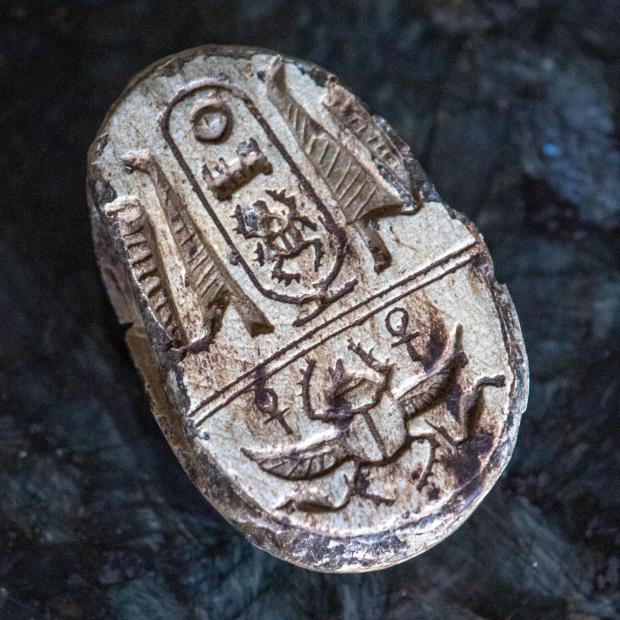https://www.thenorthernecho.co.uk/news/18305155.darlington-park-keeper-found-3-000-year-old-egyptian-beetle/
Darlington park keeper found 3,000-year-old Egyptian beetle

The ancient Egyptian carving of a scarab beetle was found by a Darlington park keeper, but has been hidden away in a box for the last 40 years
Today's Object of the week is a remarkable find which has been hidden away for decades.
FOR more than half a century, this ancient Egyptian relic has been stored in a box, in the dark, in various houses in Darlington, and all but forgotten.
When last examined by an expert 40 years ago, the antiquity was deemed to be roughly 3,000 years old.
The discovery of the object was in the humdrum of a working day by Alfred Middlemiss, a park keeper with Darlington Council.
Alfred was digging a trench when a glint caught his eye. Upon closer examination, he discovered what seemed to be a stone carved as a beetle, with hieroglyphic images on the reverse side. Alfred thought it would make an interesting ornament and, for a long time, it sat on his mantlepiece at his home in Fairfield Street.

At some point in the 1940s, he submitted it to the British Museum, which was dubious about its authenticity. However, it was also examined by Percy E. Newberry, Professor of Ancient Egyptian History and Archaeology at the University of Egypt, in Cairo, who deemed it to be a genuine ancient Egyptian carving of a scarab beetle.
It was thought to be made of glazed steatite; a soft, but heavy metamorphic rock that hardens when fired, but was easy to carve and popular with the Ancient Egyptians – and also about 1,000 years older than any other relic found in the British Isles.
In 1979, Alfred decided to have it authenticated, and sent it to the Department of Antiquities, Ashmolean Museum, in Oxford. Helen Whitehouse, curator of Ancient Egypt and Sudan, confirmed Professor Newberry's opinion, and dated it as being probably sometime between 1,000 to 700 B.C.
The following year, Alfred tried offering it for sale through Thomas Watson Auction House in Darlington, but was informed that there was little interest, and that its only value was 'of a historic nature'.
After Alfred died, 30 years ago, the beetle lived in his daughter Joyce's wardrobe until she died last year.
The keeper of this exceptional relic is now Alfred's granddaughter, June, who has been keeping it in a box in the understairs cupboard. She feels that it needs a home where it can be seen, and appreciated, by the public.
June says: "These things were buried with bodies, and I'm a bit superstitious, so I don't really like it. I would like it to be on display somewhere, rather than in a box under the stairs."
Any organisation interested in displaying the scarab should email: junepatrice@gmail.com
-- Sent from my Linux system.
No comments:
Post a Comment